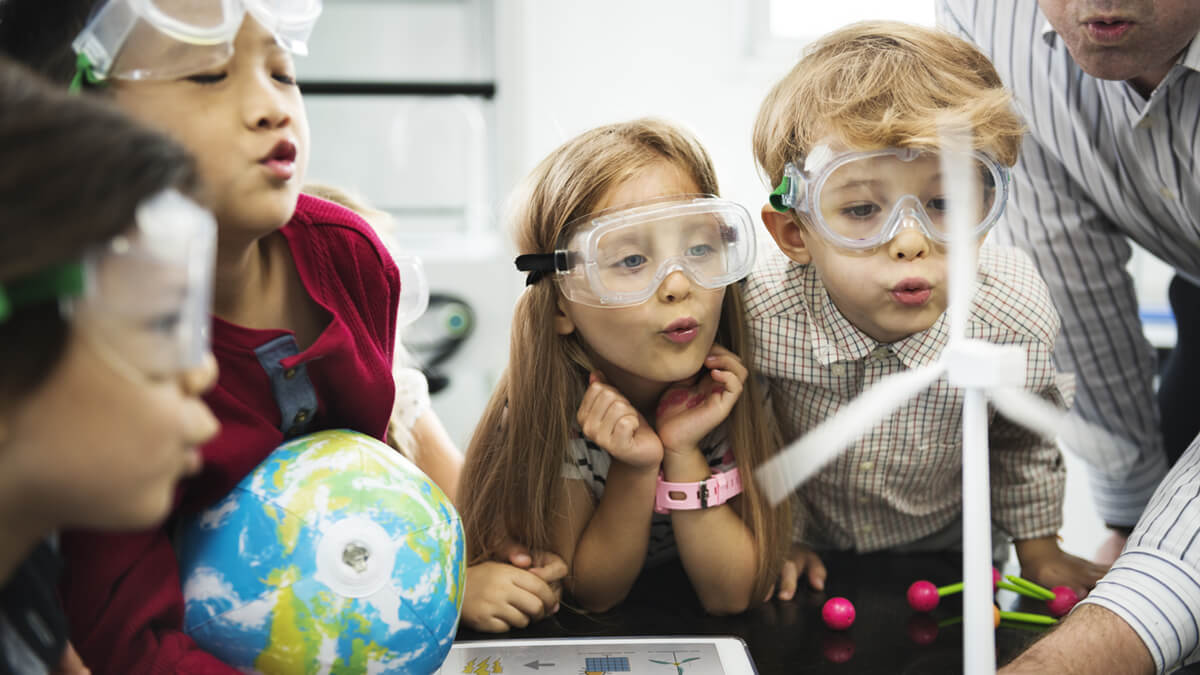Science isn’t just a school subject; it’s a way of understanding the world around us. Whether you’re introducing students to biology or helping them look at art in a different way, you can use the core principles of science as part of your teaching strategy. But to do this, you need a strong understanding of how good science works.
Students in Walden University’s MS in Education (MSEd) program are required to review materials—developed by Steven Dickhaus for Evolution and the Nature of Science Institutes—that provide an excellent overview of the six criteria that make good science.1 The criteria are:
Consistency
When you repeat an observation or an experiment, the results should be reasonably the same every time, no matter who makes the observation or conducts the experiment. For example, regardless of who observes green plants or how many times those plants are observed, the plants will grow toward a light source. Therefore, we can consider the results to be consistent.
Observability
Good science observes the world through our five senses and the various devices that enhance those senses, such as microscopes and Geiger counters. This means that to scientifically study an event, you have to be able to observe the event with one or more of your senses. If you can’t observe it, your study of it cannot be considered science.
Natural
When explaining why or how a naturally occurring event happens, good science bases the explanation on a natural cause/mechanism. Science never uses the supernatural to explain events.
Predictability
An explanation for an event should allow a scientist to make predictions, which can be tested to help verify the natural cause/mechanism believed to be at work. For example, if you hypothesize that absorbing sunlight—or a comparable light source—explains how green plants are able to live without eating, you can predict that green plants will die without light. You can then test that prediction.
Testability
All explanations for an event (i.e., the natural mechanism you think is at work) must be testable. Since you can’t test for the supernatural, supernatural explanations are not good science.
Tentativeness
No scientific explanation is sacred. Good science is always retesting previous theories and developing new theories, which themselves can be tested. This leads to revision and correction, improving our ability to understand how the world works.
How Can You Learn More About Teaching?
When you enroll in Walden University’s MS in Education (MSEd) program, Dickhaus’ writings on the nature of science are just one of the many materials you’ll have the opportunity to study. That’s because Walden’s master’s in education program is designed to give students a strong base of advanced educational knowledge, while also providing the opportunity to specialize in an area of interest. It’s a solid choice in MSEd degree programs for those seeking to advance their teaching skills, improve their chances of gaining a promotion, and earn a higher teacher’s salary.
Walden’s master’s degree in education program is also ideal if you’re teaching full time or dealing with other time-consuming responsibilities. Thanks to Walden’s online learning format, you can complete your teaching degree from home or anywhere else you have internet access. Plus, when you earn a master’s in education online, you can choose the time of day you attend class.
Online education is making it more possible than ever to earn an advanced education degree. Walden’s comprehensive master’s in education program can help you achieve that goal.
Walden University is an accredited institution offering a Master of Science in Education (MSEd) degree program online. Expand your career options and earn your degree using a convenient, flexible learning platform that fits your busy life.
1Source: http://www.indiana.edu/~ensiweb/lessons/conptt.html
Walden University is accredited by The Higher Learning Commission, www.hlcommission.org.




